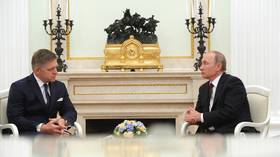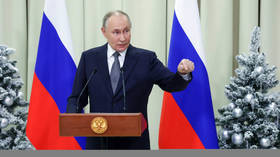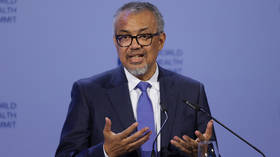Millions of impoverished Britons malnourished – report
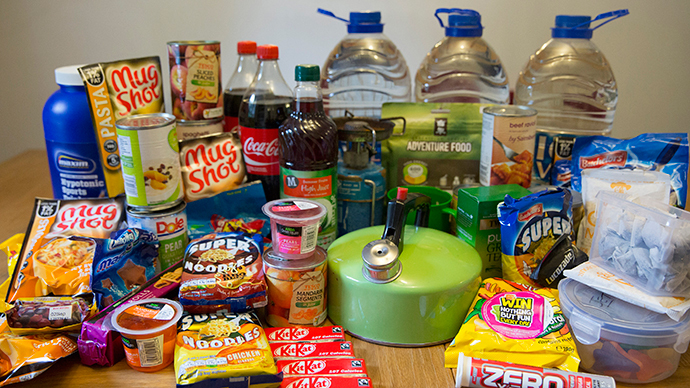
According to official figures from the government’s Family Food report, the poorest 10 percent of the UK population – around 6.4 million people – aren’t eating enough food to maintain their body weight.
The report, published by the Department for Environment, Food and Rural Affairs, found that some 6.4 million people ate just 1,997 calories a day last year. Guidelines stipulate that people should consume at least 2,080 calories to maintain a healthy lifestyle, the Independent on Sunday reports.
“The data absolutely shocked me. What it shows is for the first time since the Second World War, if you are poor you cannot afford to eat sufficient calories," said Chris Goodall, an award-winning author who writes about energy.
However, in the period after the Second World War, although there was rationing until 1954, many people grew their own vegetables and there wasn’t a culture of low-in-nutrition fast and frozen foods.
He also pointed out the widening gap in Britain between the rich and the poor. In 2001/2002, there was little difference between the amount of calories eaten by the rich and the poor, with the richest 10 percent eating about 4 percent more calories than the poorest. But by 2013 that had surged to 15 percent.
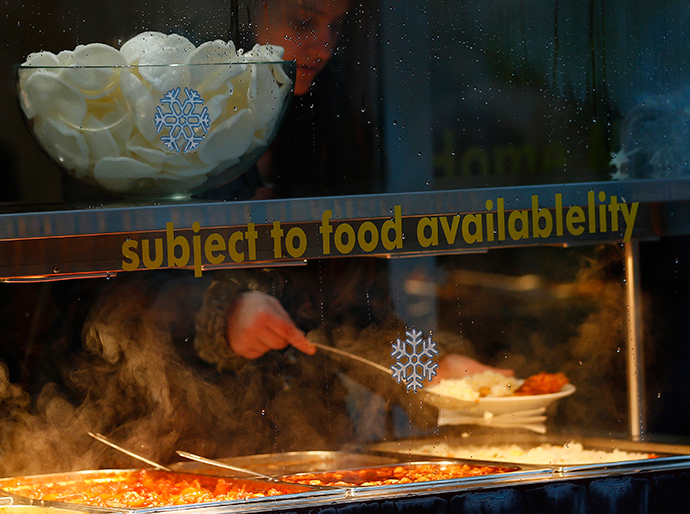
The figures also showed that the poorest members of British society spent 22 percent more on food in 2013 than in 2007, while receiving 6.7 percent less income.
The figures are reflected by a surge in the number of people using food banks over the last few years. The Trussell Trust, which runs more than 400 food banks across the UK, fed more than 492,600 people between April and September, a 38 percent increase since 2013.
"We talk to people who have had nothing but toast to eat for a week – usually parents because they are trying their best to keep their children fed," Chris Mould, the chairman of the Trussell Trust, told the Independent.
Academics advised treating the figures with caution as calorie intake is hard to measure. They said there is no doubt more and more people are going hungry and eating unhealthy diets.
“The story of people struggling is now beginning to show up in national data sets and that's a pretty bad sign. I think the numbers are quite a powerful marker of the problem. The size and nature of the problem needs more work," Liz Dowler, a professor of food and social policy at Warwick University, told the Independent.
She also warned the children of poor families will bear the brunt of food poverty.
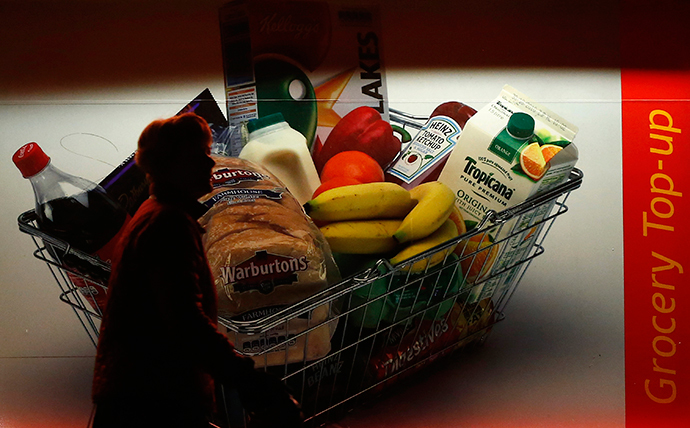
“Children who are malnourished cannot concentrate at school, have endless coughs and colds and they get sick all the time. It's a pretty negative existence," she said.
The government maintained the figures were misleading.
"The Family Food Report is an estimate of calories consumed in the home, not total calorie intake. When estimated calorie consumption outside the home is included the majority still meet their recommended daily intake,” a government spokesman said.
READ MORE: UK poor priced out of healthy diet - report
Labour claimed that, should they be voted into office in next May’s election, they will tackle the problem resolutely.
“They refuse to accept any responsibility for it, despite the fact that their [the government] policies are making it worse," Maria Eagle, Labour’s shadow environment secretary said.
"Only by tackling the cost-of-living crisis can we begin to see the numbers of people at risk of going hungry decline. That is why the next Labour government will raise the minimum wage, ban exploitative zero-hour contracts and abolish the bedroom tax," she said.
The Family Food report looked at 6,000 households and also found that, apart from the poorest 10 percent, as a whole across the UK people were eating five percent more calories than the required norm.


